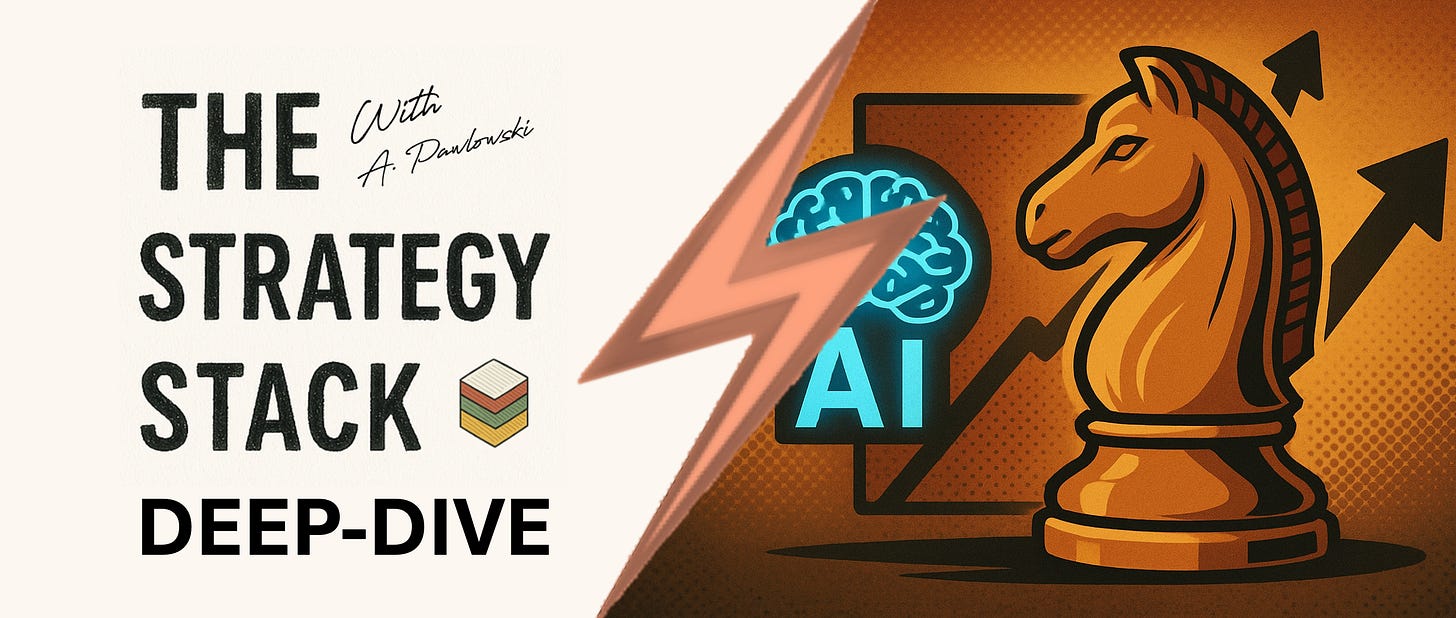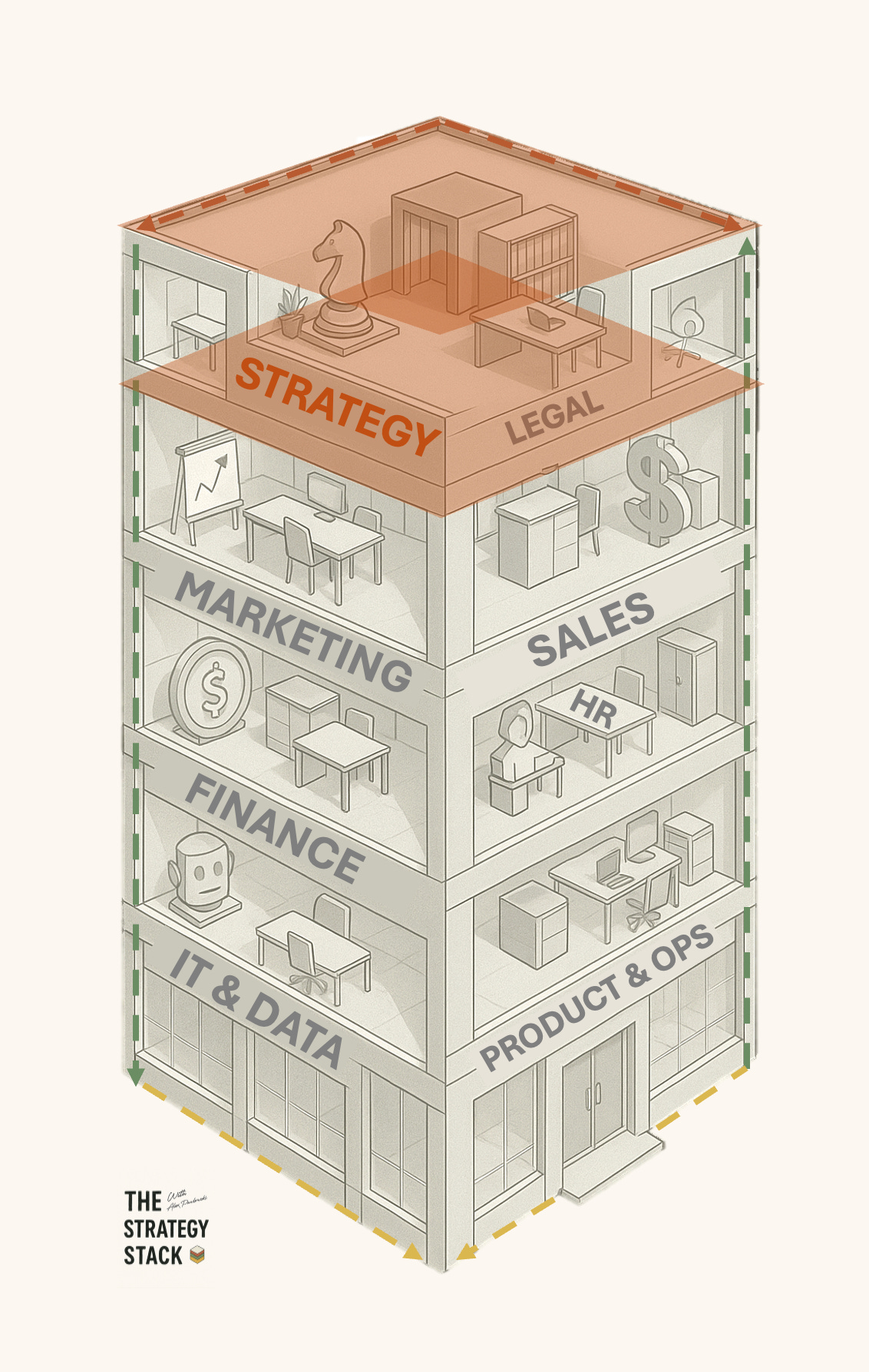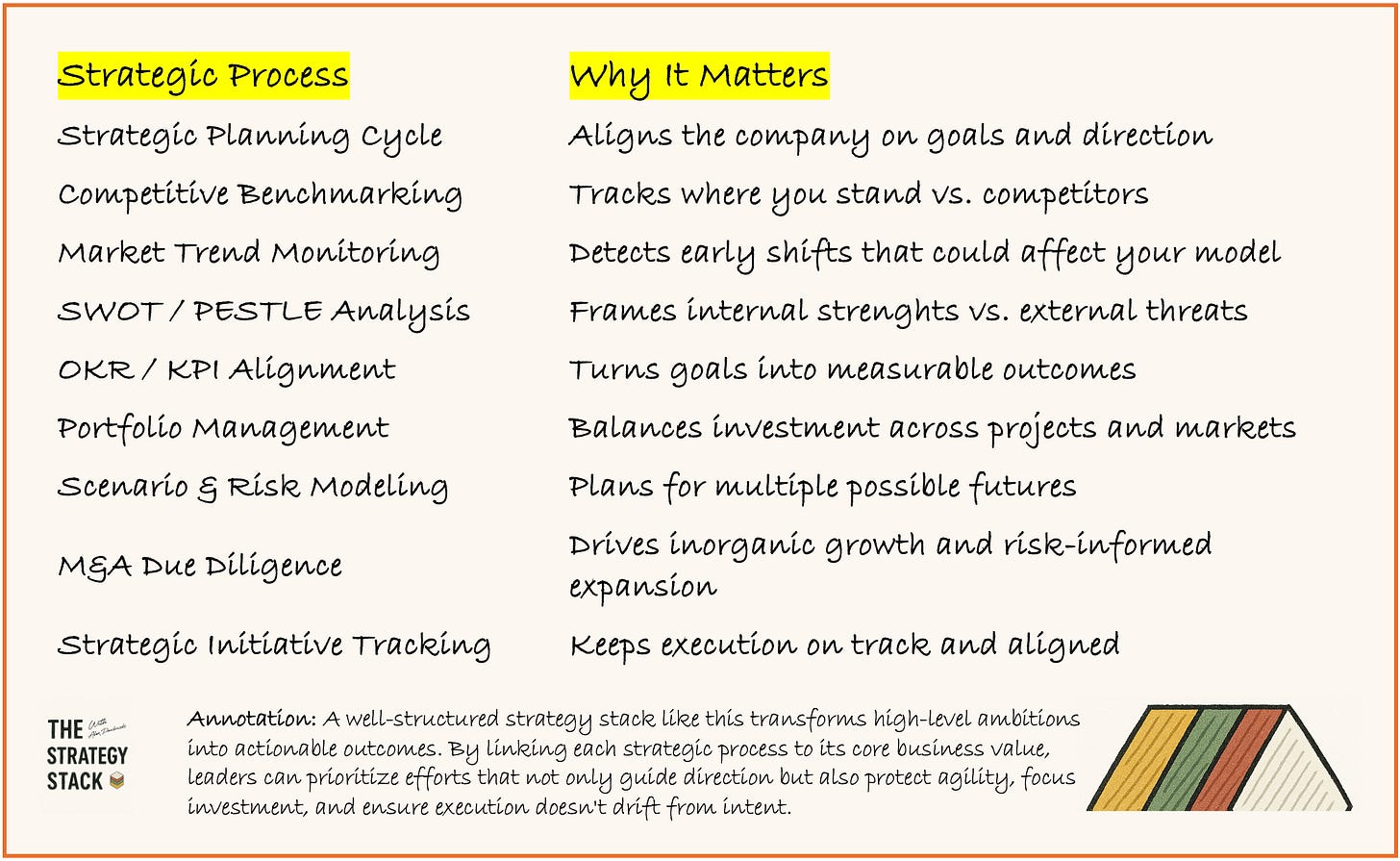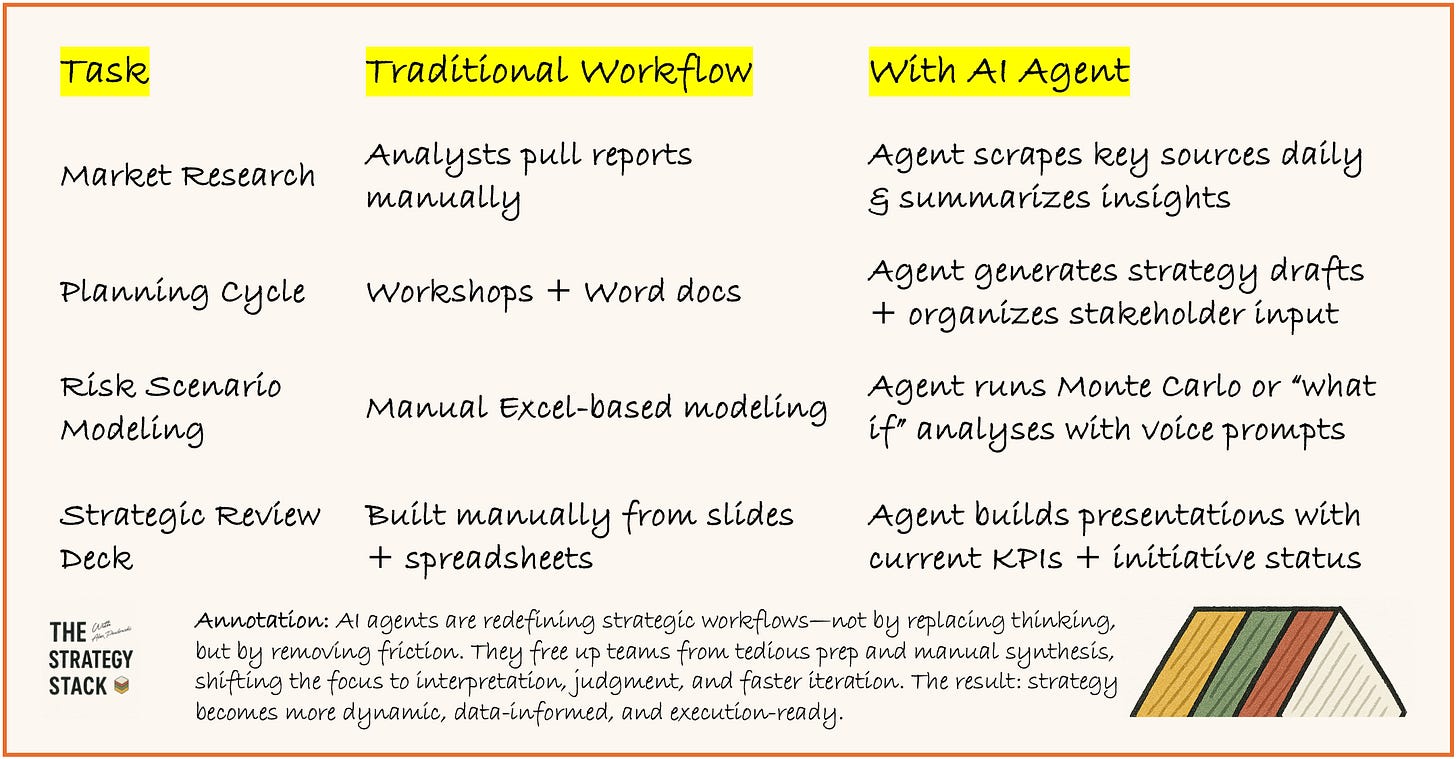AI Agents in Business - PART 1: STRATEGY
#77: Rewiring Strategic Planning with AI Agents
We’re entering a new era of business operations — one where traditional workflows are being reimagined through the lens of AI agents. These aren't just tools or chatbots — they are intelligent, semi-autonomous collaborators that can analyze information, make recommendations, and even take action across systems.
In this 10-part series, "AI Agents in Business: The Enterprise Transformation Series," we’re breaking down how every major department — from Strategy to Finance, Marketing to IT — can harness AI agents to improve AI risk management, productivity, decision-making, and speed.
Each part will serve as a practical guide, showing:
The core standard processes in the department
Where inefficiencies exist
How AI agents can augment or automate the work
What tools, prompts, and context are needed
Before/after workflow designs
The risks, trade-offs, and implementation tips
In Part 1, we begin with the Strategy function — the brain of the enterprise. It's where long-term goals are set, competitive positions are analyzed, and major bets are made. Yet ironically, strategy work is often the least automated and most slide-driven in modern companies.
This issue explores how AI agents can fundamentally transform the way strategic planning, market research, competitive analysis, and initiative tracking are done — with real use cases, agent recipes, and implementation steps you can use right away.
If you're a strategist, chief of staff, product leader, or founder, this is where to start.
🔹 1. Introduction
Strategy is the compass of the company. It defines where to go and why. But in most organizations, strategy work remains overly manual, slide-heavy, and slow to react to change. By the time a strategic plan is finalized, market conditions may have already shifted.
AI agents can radically change this dynamic. These aren't just chatbots — they are autonomous, context-aware assistants that continuously gather data, analyze scenarios, and generate strategic output on command.
This guide explores:
The core processes of the strategy function
How they can be transformed with AI agents
Specific tools, agent designs, and implementation recipes
A build-it-yourself guide for each process
🔹 2. Overview of Core Strategic Processes
Start by mapping your current strategic workflows. These are usually tied to planning cycles, research, goal alignment, and initiative tracking.
✅ Practical Tip: Document which of these are done quarterly vs. continuously. This will shape your agent design cadence.
🔹 3. Before & After: Strategy with AI Agents
Let’s visualize what’s actually changing when AI enters the strategy room.
🔹 4. AI Agent Opportunities & Recipes
You don’t need to “boil the ocean.” Start by embedding one agent per process. Below are low-code or no-code recipes for each strategic function.
✅ 1. Planning Co-Pilot
Use Case: Drafts annual/quarterly strategic plans from goal documents
Tool Stack: Notion AI + GPT-4 + Slack
Prompt Template:
“Generate a 2-page strategy draft for [Dept] based on our FY24 goals, key risks, and market outlook. Summarize into exec talking points.”
Practical Setup:
Load company goals into Notion
Connect GPT-4 to pull data from Notion via API or Zapier
Push draft to Slack for review threads
✅ 2. Competitive Research Agent
Use Case: Benchmarks competitors’ new moves
Tool Stack: Web scraper (Browse AI) + Feedly + Claude 3
Automation Flow:
Scrape competitor sites/blogs
Feed articles into Claude
Summarize changes, pricing, product launches
Prompt:
“Compare the top 5 pricing and GTM changes from competitors in the last 90 days.”
✅ 3. Trend Scanner Bot
Use Case: Weekly report of emerging market signals
Tool Stack: Feedly + Zapier + GPT-4
Delivery: Slack post + PDF
Prompt:
“Summarize 5 new emerging trends in [industry]. Rank them by potential impact and novelty.”
✅ 4. OKR Generator Agent
Use Case: Proposes draft OKRs from strategic themes
Tool Stack: GPT-4 + Notion + Google Sheets
Prompt:
“Based on this Q1 strategy document, propose OKRs for Product, Marketing, and Operations. Include target values.”
Optional Add-On: Use Loom to record short executive summaries per department.
✅ 5. Scenario Risk Planner
Use Case: Runs simulations on market changes
Tool Stack: Excel + ChatGPT Plugins OR CoPilot for Excel
Prompt:
“If raw material costs increase by 15% and revenue drops by 10%, what’s the impact on EBITDA?”
Bonus: Use GPT to generate “stress-test decks” in slide format.
Keep reading with a 7-day free trial
Subscribe to The Strategy Stack to keep reading this post and get 7 days of free access to the full post archives.





